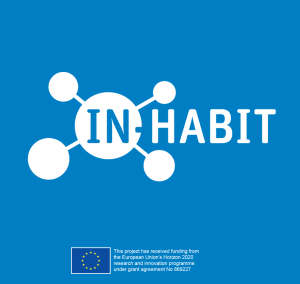
Saturday October 31st took place the policy conference “Intorni”, coordinated by Tesserae in the frame of the UPPER Latina Urban Innovative Action project. In the following a report of the discussiont in English. Find here on UPPER website an version in Italian.
The conference was part of a programme of online activities and events related to the topic of participation, carried out in collaboration with the #OfficinediCittà, a project by the municipality of Latina, and coordinated by the network of Avanzi – Sostenibilità per Azioni. Lorenzo Tripodi started the discussion with a reflection on the hierarchies of roles and power relations in the urban panorama, which are particularly fixed in time and space. The renewed attention to the co-production of visions and solutions for urban transformation requires an active involvement of citizens. This need often clashes with the lack of appropriate spaces and it makes evident the problem of managing social innovation processes, especially within the framework of traditional public structures and spaces. There is a strong demand for new forms of open and flexible community spaces to allow a symmetrical and horizontal exchange between citizens and institutions, enhancing a bottom-up development of capacities and initiatives. In this context, the new models of civic centres emerge, opening their perspective to co-designing services and solutions. These structures should not be understood simply as containers, as limited and dedicated spaces, but rather as catalysts, as open laboratories, cockpits for the care and transformation of the territories that host them.
Therefore, some realities that are involved in the creation and management of new spaces for participation in Italy and in Europe have been invited to have a public conversation, starting from four essential questions:
-What role for public policies and local administrations in grasping requests and initiatives coming from the territories regarding civic spaces?
-How to use the new urban workshops as catalysts for claiming and producing common goods?
-How to put nature and environmental sustainability back at the focus of urban development and regeneration processes?
-How to involve citizens – especially those groups that are normally excluded because they lack the primary conditions to be able to afford participation – in the co-design of public spaces and common goods?
The new cultural centres: spaces and practices
The conference opened with a speech by Laura Colini, co-founder of Tesserae and Program Expert for EU URBACT, who questioned the nature of urban spaces for participation. Civic and social centres, in fact, are an essential typology of urban spaces that has found through history a variety of forms and expressions, until becoming at the end of the last century an object of political claim, direct action and occupations. In more recent years, urban policies have moved closer to the practices of shared management of spaces developed in the context of struggles for the right to the city, as part of an integrated planning logic that combines the discourse of urban regeneration with that of social innovation. In this paper we will present a brief overview of significant experiences that have succeeded in experimenting new spaces of civic participation in the European panorama.
Then, Marilù Manta, Project Manager of cheFare, was the witness of the discussion: her speech was intended to take stock of the situation regarding the new cultural centres that have emerged in Italy. Between “regulatory conflicts” and moments of effervescence, the new cultural centres have become the “hotspot”, the generative welfare centres, the spaces of comparison, that enable new forms and cultural practices, relating to the territory of reference and experimenting, in some cases, new ways of collaboration and innovation. During the past years, cheFare has been working alongside grassroots cultural organisations, research bodies, cultural producers and policy makers to trace new paths of cultural transformation. After launching the first Call to Action in February to map out the new cultural centres in Italy, the Festival “La Guida” was born, taking places in the territories of Liguria, Piedmont and Valle d’Aosta and whose main theme was participation.
The word then passed to Pasquale Bonasora, Labsus‘s spokesman for Puglia region, who illustrated the tool of the “Collaboration Pacts”, aimed at facilitating the path of collaboration between institutions and communities in the care of common goods. Through the pacts, a social, political and cultural process is promoted, fostering links between people, places and institutions. The Shared Administration model, of which the Pact is an implementation tool, is today the heritage of this process and it is daily experimented in more than 200 municipalities in Italy, where about 3000 Collaboration Pacts have been signed.
Annalisa Pecoriello, head of the UniFi spin-off “MHC-Progetto territorio” and founder of the “La Città Bambina” Association, talked about children and their relationship with public space and its design. The transformations of the urban environment in modernity seem to have implemented a systematic process of expulsion of children from public space, in the name of the need to control and protect them. This process has been carried out through educational practices and the creation in urban planning of leisure places “dedicated” to children, such as playgrounds. In reality, the need imposed by modernity was to free the streets from children to make room for cars.
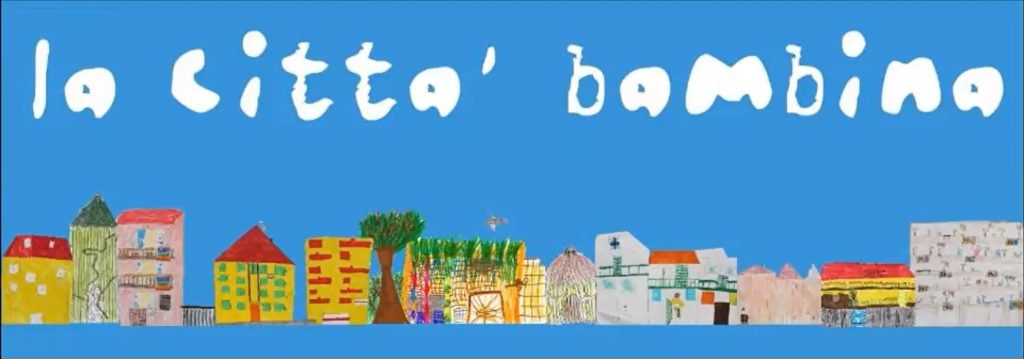
The life of contemporary urban children is increasingly taking place in defined spaces (and scheduled times), under the control of adults, even beyond school time (which has already been extended considerably longer than before). Much of the children’s time has passed far from contact with nature and the primary elements (air, water, earth, fire), which offer greater possibilities for imaginative, transformative and adventurous play. During the speech, the speaker presented some experiences that try to deconstruct the image of the child as being in need of protection, showing how children have their own skills, desires and volitions. Therefore, they must be given many spaces of freedom and autonomy, considering them actors in the transformation of their living environment, through the reopening of spaces of participation. In particular, Annalisa recounted the participatory planning experience of the “Montagnola da vivere”, carried out together with the children of the IC Montagnola Gramsci in the Municipality of Florence.
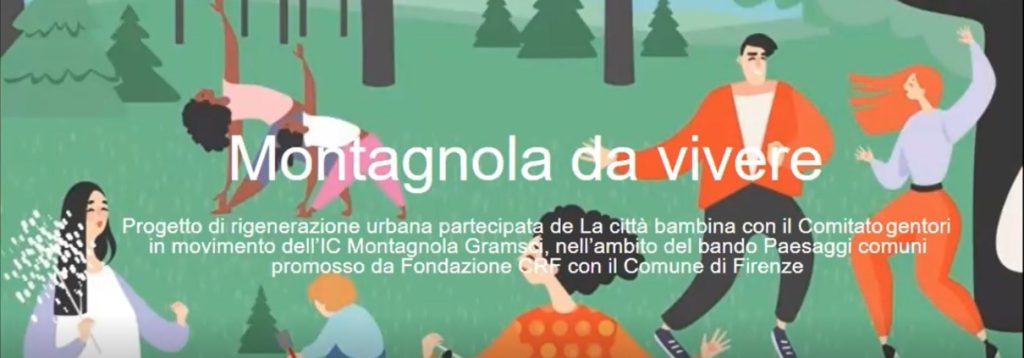
The experiences of Turin and Latina in Italy
The last part of the conference told about the experiences of the “Case di Quartiere” of Turin (Neighbourhood Houses) and “Officine di Città”( the City’s Workshops), which Roberta Molinar, part of the Mirafiori Foundation, and Elena Donaggio, together with Sara Le Xuan of the Avanzi network, talked about respectively.
The Network of Case del Quartiere APS is a local network that brings together the eight “Neighbourhood Houses” of Turin to spread good practices of social innovation and urban regeneration, starting from the needs of the territories. The aim is to make the citizens the real protagonists of the social and cultural life of the neighbourhoods. The Network works to disseminate projects and services that improve the quality of life in Turin’s neighbourhoods, starting with the development and spreading of the Neighbourhood Houses model. The Case del Quartiere (Neighbourhood Houses) are public spaces open to citizens of all ages, created in Turin since 2007. They are places that adapt to everyone’s needs and propose very different initiatives: from cultural events, to personal services, from advice desks to catering services and much more. The Neighbourhood Houses act to facilitate, stimulate and activate experiences of active citizenship: in each House there are qualified and competent staff, ready to help people transform their ideas into real projects. This is a fundamental territorial “stronghold” which, starting from listening to the needs of citizens, builds paths for the development of communities and concrete services of public utility.
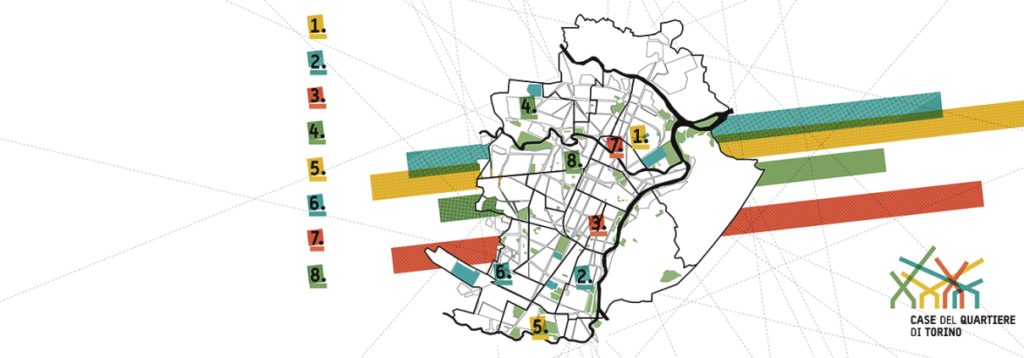
Officine di Città is a process of co-design that aims to enhance the future 5 houses in the district of the Municipality of Latina: former printing house in Viale XVIII Dicembre, former nursery school in Via Milazzo, former cellar house in Borgo Sabotino, former Enal cinema in Latina Scalo and the social centre in Borgo Piave. The process, launched in January 2020, involved and activated the local communities as protagonists of the process itself. There were several work tables, in addition to the implementation of a temporary use experiment that saw the implementation of various social and cultural activities promoted by the local communities within the 5 spaces.
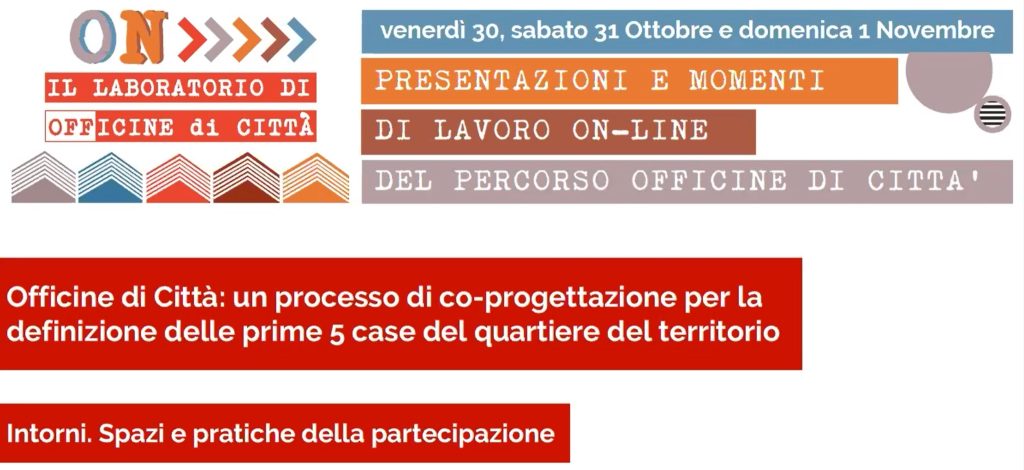
The path of Officine di Città is now coming to an end: by the end of the year the guidelines for the enhancement and reactivation of future houses in the neighbourhood will be implemented. These guidelines will be the basic material for the construction of the 5 complex collaboration pacts that the local communities are called to propose.
After the speeches, Cristina Leggio, the representative of the municipality of Latina, congratulated all the speakers for the intense exchange that took place during the conference. She stressed the fact that the time has now come to build alliances and reverse trends: the reality is that many of the experiences dealt with are no longer being tested but must be projected into a phase of consolidation. The task of the city administrations is to claim the alliance between the political-administrative actors and civil associations to help consolidate these experiences and start a cultural transition on these issues.
Following the questions posed by some participants at the conference, a brief but intense exchange with the speakers followed: there was talk of overcoming the “appearance policy” on the part of public administrations, now called upon to give a concrete follow-up to the participation processes carried out so far. The discussion then moved on to the issue of financing and the Neighbourhood Houses management model: here Roberta Molinar, who explained the economic functioning of the Turin system, spoke again. Each House as a public property is entrusted in concession to one or more managing bodies, which then finance their own budget through the activities that take place within the spaces of the houses. Full economic sustainability is in any case guaranteed by a contribution from the City of Turin (granted together with the Compagnia di San Paolo), by virtue of the social commitment publicly recognised in the statute of the Neighbourhood Houses.
Report by Michele Deveteg
